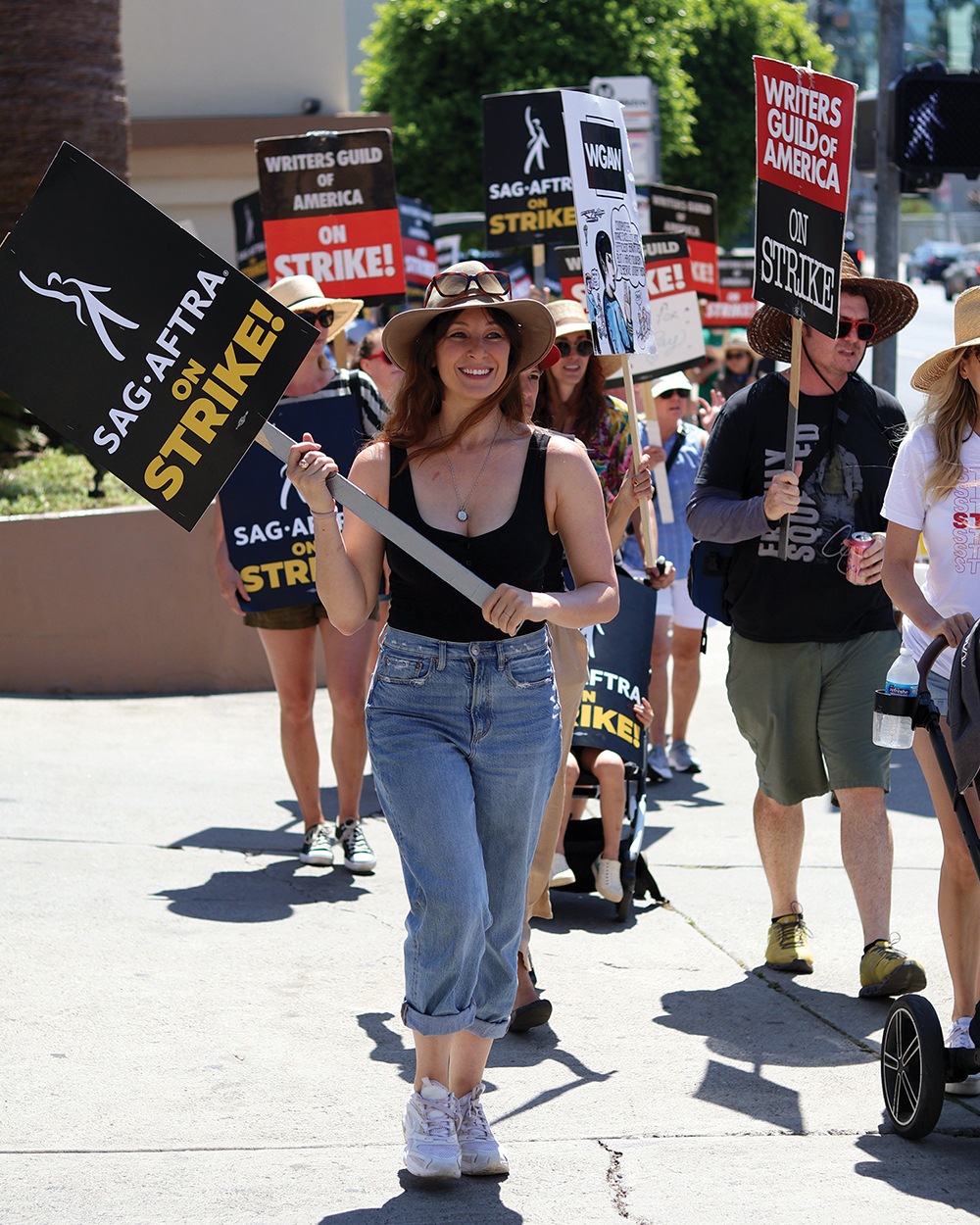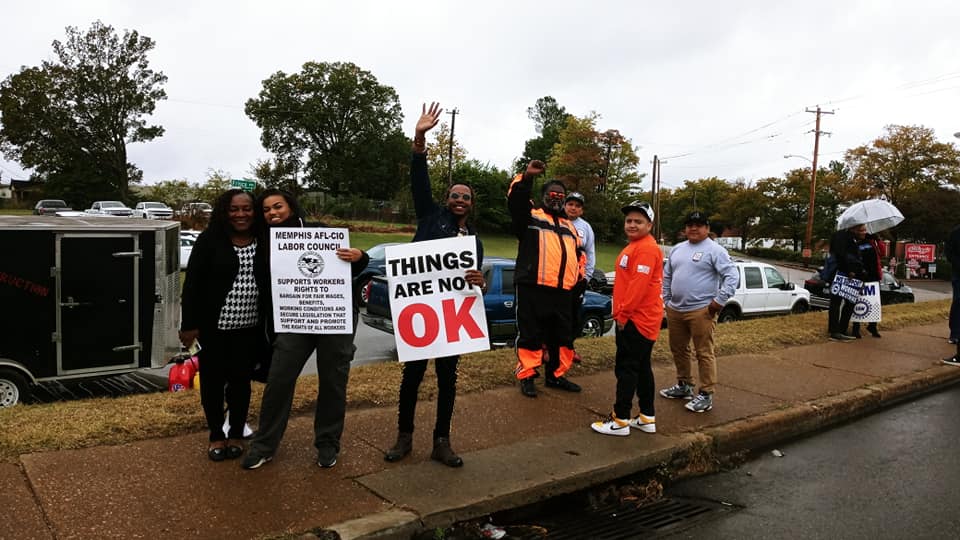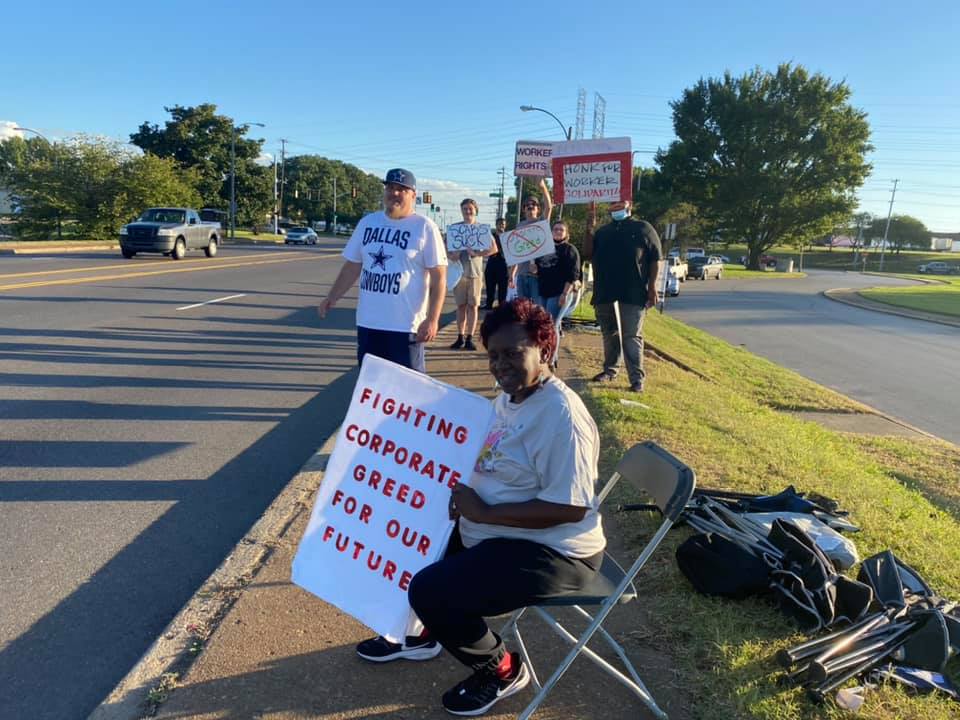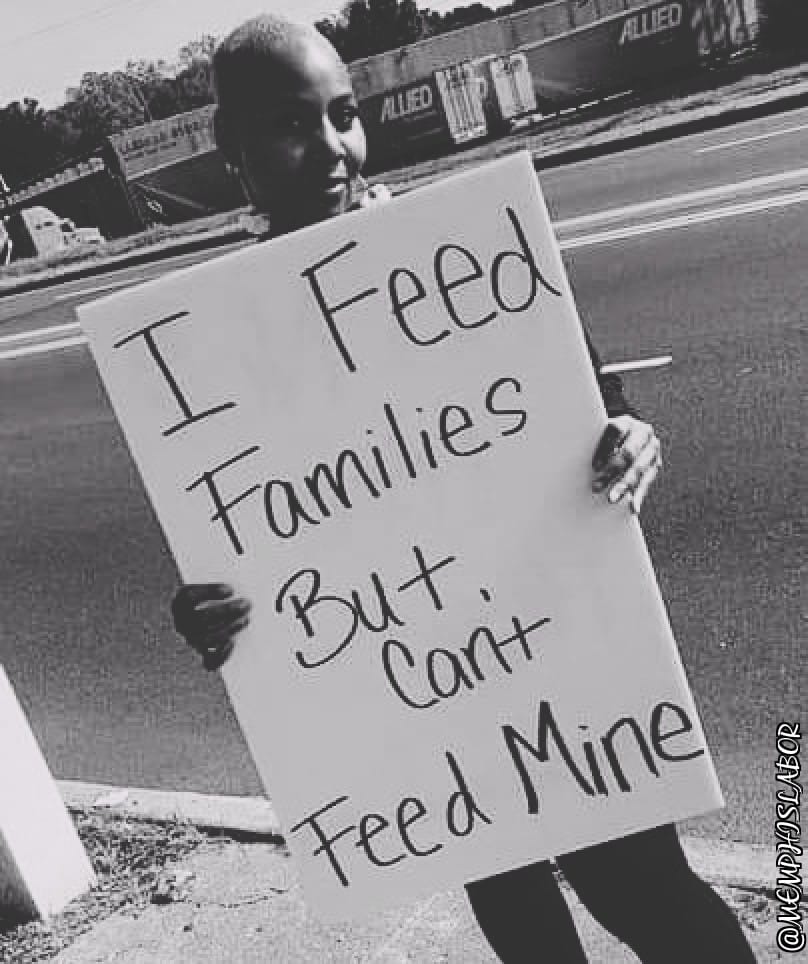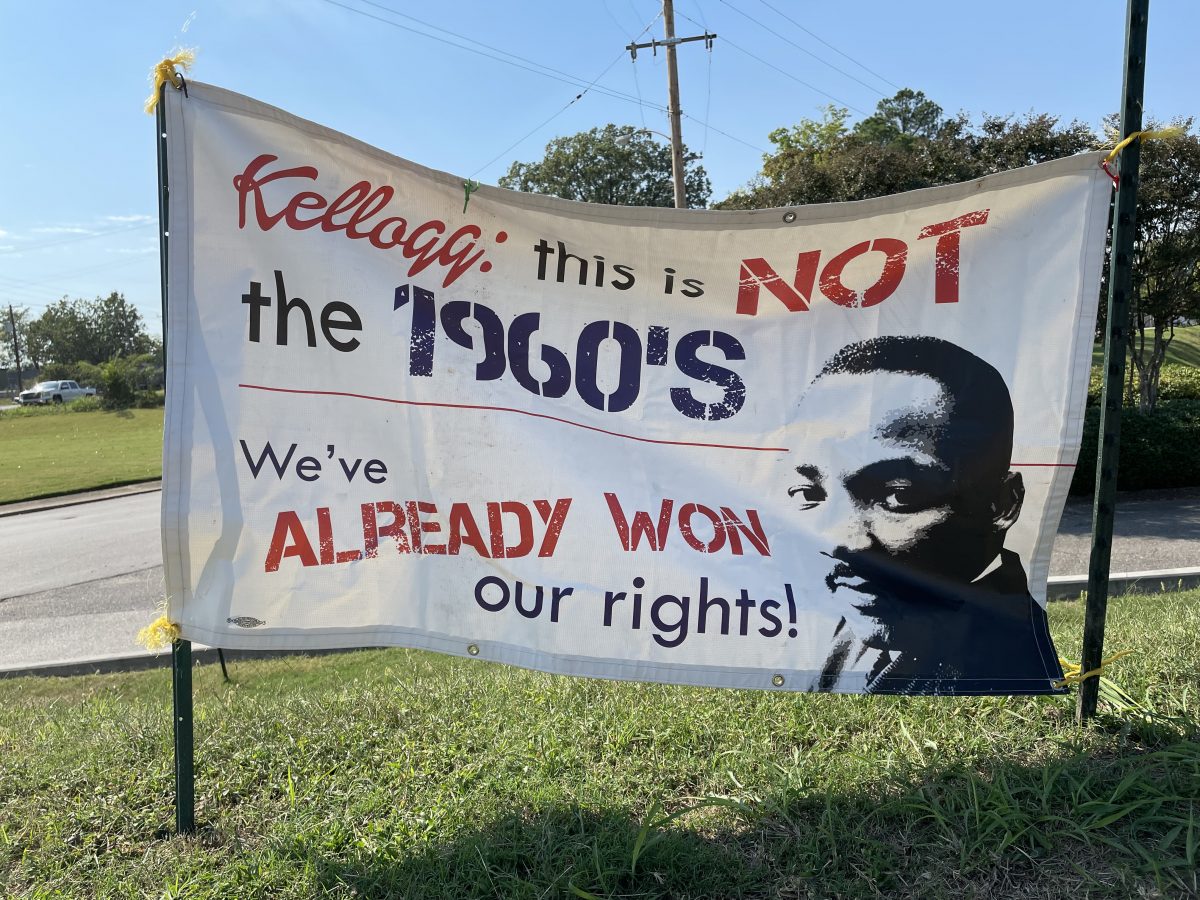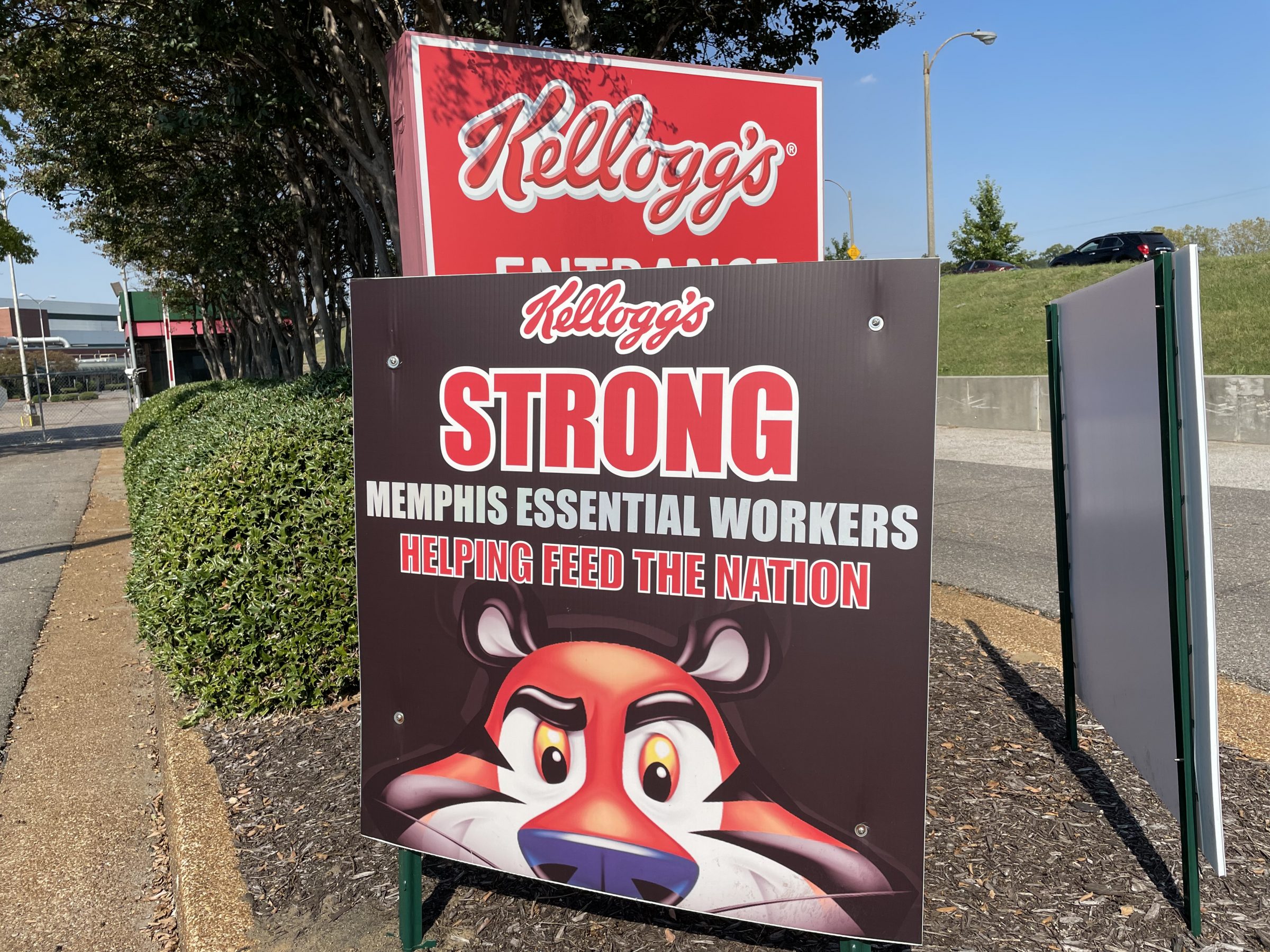After nearly five months of organizing, about 140 members of the Bakery, Confectionery, Tobacco Workers and Grain Millers International Local 390G are still striking in Memphis and recently took their fight for better wages and benefits to New York City, rallying outside the International Food and Flavors (IFF) headquarters.
The members of BCTGM have been on strike since June 4, at which time the union said in a press statement they hoped to negotiate a fair contract with the strikers’ employer. Prior to the strike, workers had been subject to the terms of an expired contract for more than a year.
At IFF, employees manufacture soy protein products used by Nestle and Abbott Nutrition in baby formula, pet food, and other food and beverage products. Members have been utilizing a strike fund to help pay bills, and some have taken temporary jobs to make ends meet in the meantime.
Cedric Wilson, Local 390G president and IFF worker, said about 40 people attended the NYC rally on Oct. 19 — including workers from United Auto Workers Local 3039 and the AFL-CIO.
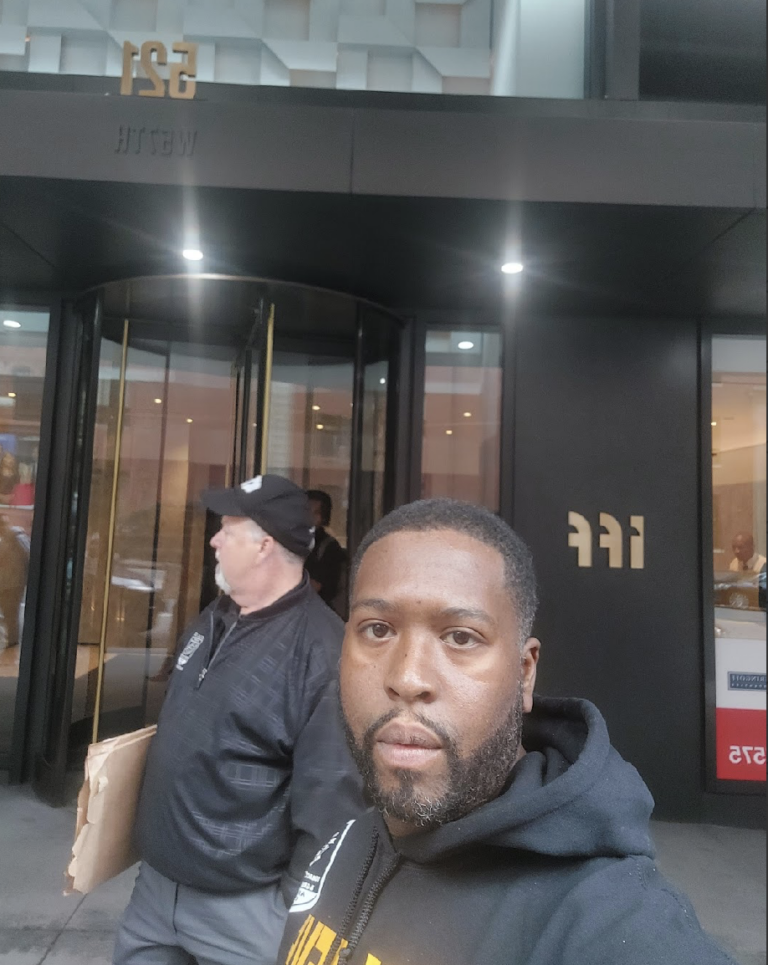
Wilson said IFF leadership has not been negotiating in good faith, calling their attempts “surface bargaining,” in which a company goes through the motions without real intention to offer a fair contract. He also said BCTGM has sent letters to leadership and asked them to return to the bargaining table. While the corporation has been non-responsive and Wilson has seen scabs cross picket lines to continue working, there has been little push back from the community and local police officers.
Workers must organize if they ever hope to achieve a better future, he said. “It’s necessary,” Wilson said. “If you keep a man down, you’re going to keep losing. We decided this time, we’re not going to lay down.”
In an email statement, IFF said it has made every effort to reach a fair agreement and has presented BCTGM members with multiple offers. IFF did not respond to requests for documents proving BCTGM has declined contracts or negotiations.
“We have implemented our proposal, offering overtime pay … and have not made any changes to benefits in the 2023 plan year,” an IFF representative said in the statement.
In its 2022 corporate update, IFF reported $12.4 billion in sales.
Jacob Morrison, Valley Labor Report co-host and secretary-treasurer of the North Alabama Area Labor Council, recently spoke with Wilson on air and said the narrative about working class Southern organizers in the media is often presented in an oversimplified manner.
Organizing at a company like IFF — which doesn’t have the same name recognition Nestle and other giants do — could stand in the way of garnering additional attention and support, according to Morrison.
“Every day, workers across the South are fighting David and Goliath battles and we want to try to do what we can to raise awareness of that and help educate people about how they can do the same things in their own workplaces,” Morrison said. “These are not crazy unreachable things. This is something that normal people do and other normal people do, if they’re willing to take the time.”
Despite the challenges, Morrison said union organizing and support for labor issues are on the rise. That may be due to hearing corporate leaders publicize record profits as inflation increases, as well as working class Americans seeing results from pandemic-era programs like the expanded child tax credit that reduced child poverty to new lows.
Every day, workers across the South are fighting David and Goliath battles and we want to try to do what we can to raise awareness of that and help educate people about how they can do the same things in their own workplaces.
– Jacob Morrison, North Alabama Area Labor Council
While previously willing to accept concessions, Morrison said workers are now in a better position to demand fair wages, better conditions and overall results.
“We’ve seen there’s so much money sloshing around,” Morrison said. “We get wins. The UAW and the Teamsters have been some of the biggest consistent labor stories. The tide and public opinion has begun to turn.”
“People are believing less and less that unions are a corrupt special interest and seeing more and more than unions are basically one of the only institutions that the working class has to level the playing field against corporate greed.”
Wilson said that despite the hardship of being on strike, including not currently having healthcare for himself, workers will continue to organize until IFF is willing to negotiate.
“My biggest personal issues are … making sure everyone stays afloat, but we’re not quitting,” Wilson said. “I’m these guys’ leader. If I’m not prepared to strike, how can I tell someone else to?”
Tennessee Lookout is part of States Newsroom, a network of news bureaus supported by grants and a coalition of donors as a 501c(3) public charity. Tennessee Lookout maintains editorial independence. Contact Editor Holly McCall for questions: info@tennesseelookout.com. Follow Tennessee Lookout on Facebook and Twitter.

